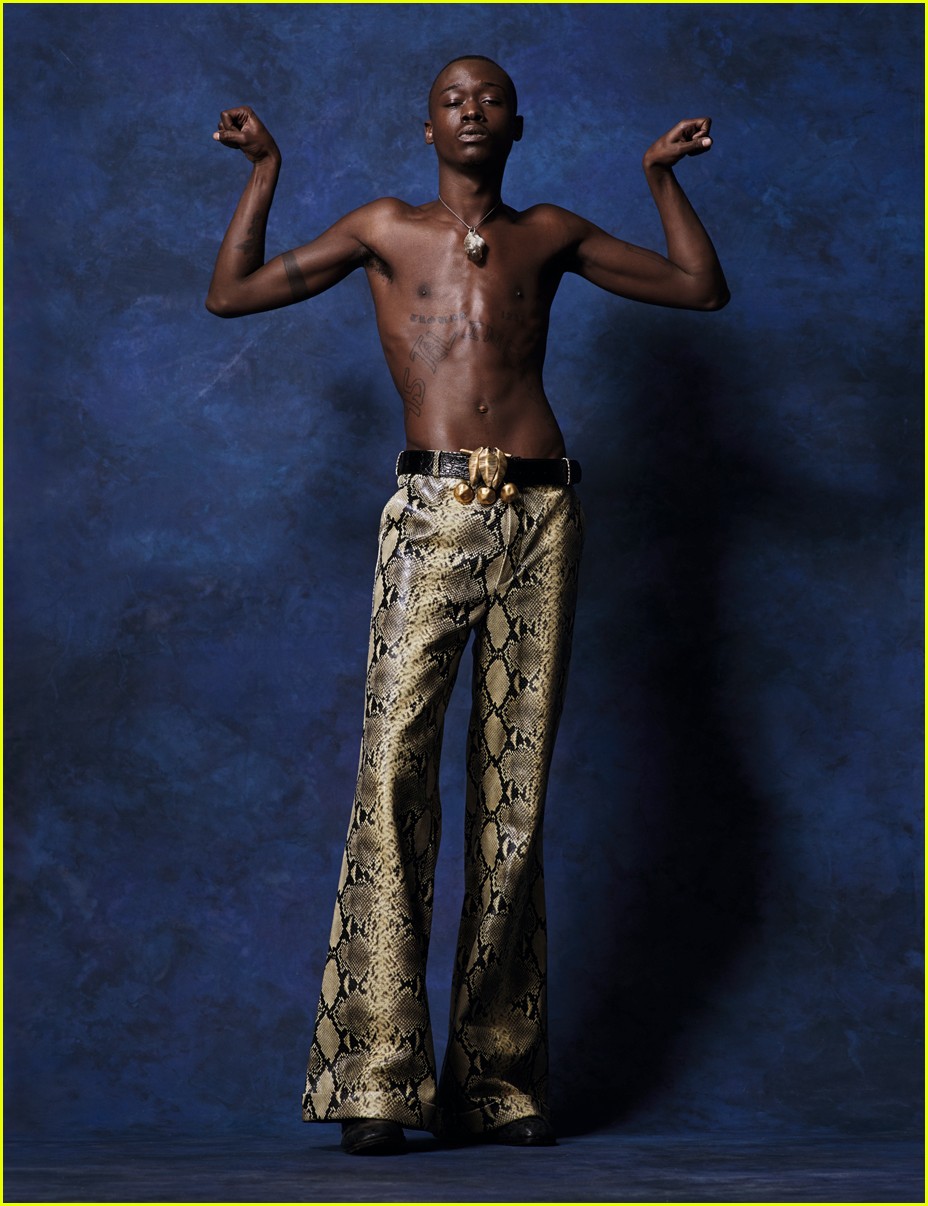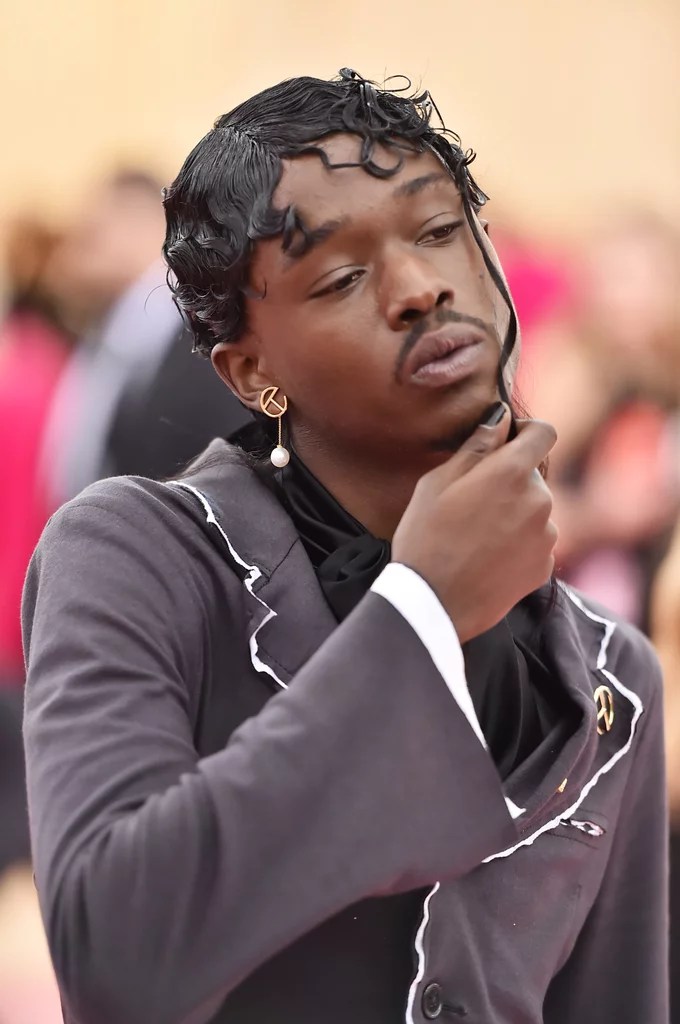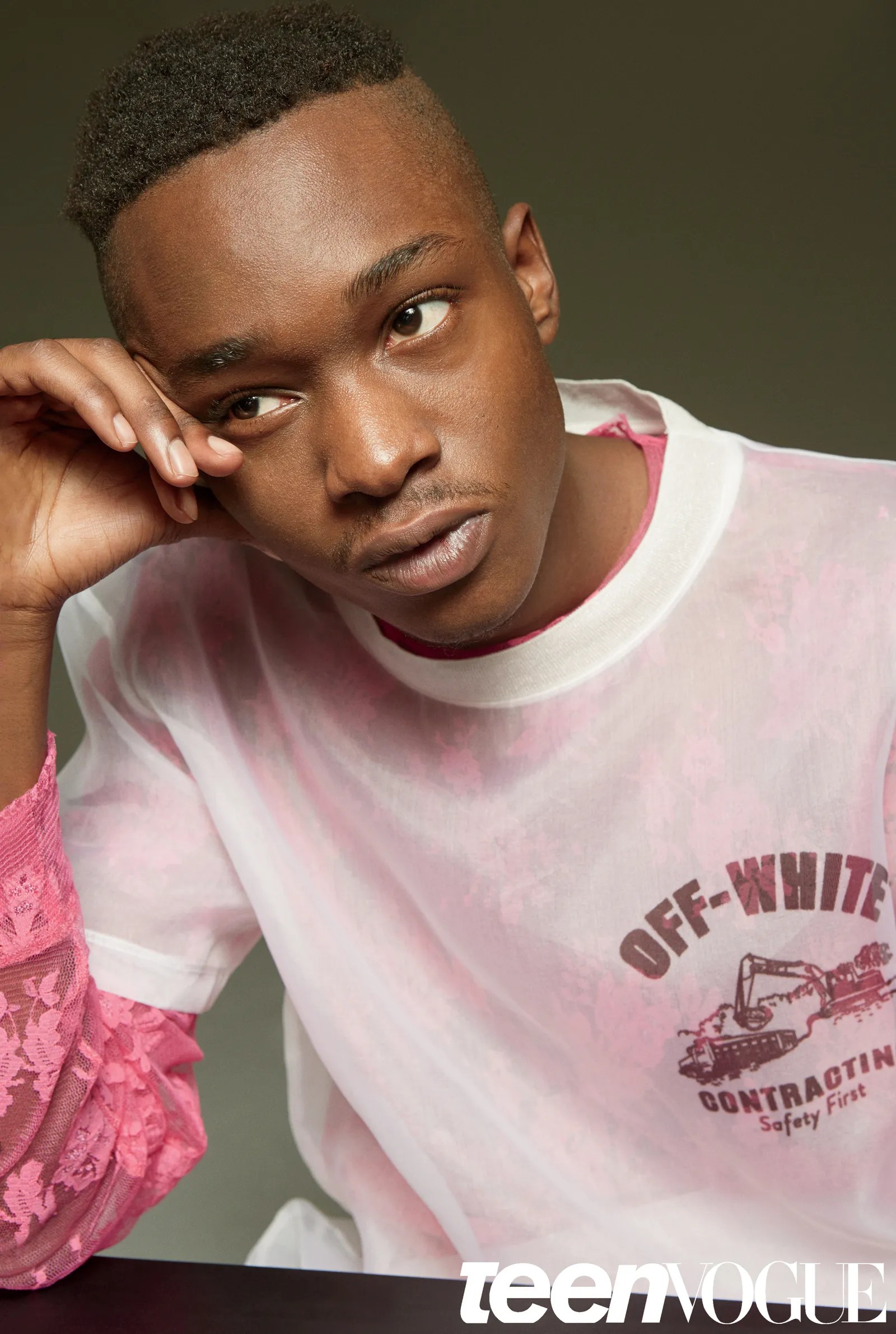The question of "is ashton sanders gay" refers to the speculation and rumors surrounding the sexual orientation of actor Ashton Sanders. Sanders has never publicly confirmed or denied his sexual orientation, leading to ongoing media and public interest in the topic.
The importance of the question lies in the ongoing cultural dialogue surrounding LGBTQ+ rights and representation in the entertainment industry. Sanders's refusal to publicly label his sexual orientation has sparked discussions about the privacy of public figures and the right to personal boundaries.
The main article topics will explore the historical context of LGBTQ+ representation in media, the impact of speculation and rumors on public figures, and the evolving cultural norms surrounding sexual orientation and privacy.
is ashton sanders gay
The question of "is ashton sanders gay" has sparked discussions on various dimensions, including:
- Privacy
- Representation
- Speculation
- Identity
- Sexuality
- Media
- Culture
- Society
Ashton Sanders's decision not to publicly label his sexual orientation has raised questions about the right to privacy in the public eye. It has also sparked discussions about the importance of LGBTQ+ representation in media and the impact of speculation and rumors on public figures. Ultimately, the question of "is ashton sanders gay" is a complex one that touches on issues of identity, sexuality, and the evolving cultural norms surrounding privacy and representation.
Privacy
In relation to the question of "is ashton sanders gay", privacy refers to the right of individuals to keep certain aspects of their personal lives confidential. This includes the right to control the disclosure and use of personal information, such as sexual orientation.
- Right to Control Information: Individuals have the right to decide what information about themselves is shared with others, including their sexual orientation. This right is essential for maintaining personal autonomy and preventing the spread of misinformation or invasion of privacy.
- Protection from Discrimination: Privacy laws help protect individuals from discrimination based on their sexual orientation. By keeping personal information confidential, individuals can reduce the risk of being targeted for harassment or violence.
- Freedom of Expression: The right to privacy allows individuals to express themselves freely without fear of repercussion. This includes the right to choose whether or not to disclose their sexual orientation.
- Public Interest: In some cases, the public interest may outweigh an individual's right to privacy. For example, if a public figure's sexual orientation is relevant to a matter of public concern, the media may have a right to report on it.
The question of "is ashton sanders gay" highlights the complex relationship between privacy and public interest. Sanders has the right to keep his personal life private, but the public may also have a legitimate interest in knowing about his sexual orientation, especially if it affects his public persona or role model status. Ultimately, it is up to Sanders to decide how much of his personal life he wants to share with the public.
Representation
Representation refers to the portrayal of different groups of people in media and culture. It encompasses the accurate and inclusive depiction of diverse identities, backgrounds, and experiences.
- Visibility and Awareness: LGBTQ+ representation in the media increases visibility and awareness of the community, challenging stereotypes and promoting understanding.
- Role Models and Inspiration: Positive and diverse LGBTQ+ representation provides role models and inspiration for young people who may be struggling with their own identity or coming to terms with their sexuality.
- Countering Stigma and Discrimination: Accurate and sensitive representation can help to counter stigma and discrimination faced by the LGBTQ+ community.
- Cultural and Social Change: LGBTQ+ representation in media and culture can contribute to broader cultural and social change, fostering greater acceptance and equality.
In the context of "is ashton sanders gay", representation is important because it can provide visibility and inspiration for LGBTQ+ youth, challenge stereotypes, and contribute to a more inclusive and accepting society.
Speculation
Speculation, in the context of "is ashton sanders gay", refers to the spread of unconfirmed information or rumors about a person's sexual orientation. Speculation can arise from various factors, including a person's behavior, appearance, or associations.
- Lack of Confirmation: In the absence of confirmation from the individual in question, speculation often fills the void, leading to assumptions and rumors.
- Media Attention: Public figures, such as actors, are often subject to intense media scrutiny, which can fuel speculation about their personal lives, including their sexual orientation.
- Social Media: The rise of social media platforms has provided a fertile ground for speculation and the spread of unverified information.
- Cultural Norms: Societal expectations and stereotypes can influence how individuals are perceived and categorized, contributing to speculation about their sexual orientation.
Speculation about Ashton Sanders's sexual orientation highlights the challenges faced by public figures in maintaining their privacy and controlling the narrative around their personal lives. It also underscores the importance of respecting individuals' boundaries and the need for accurate and confirmed information in public discourse.
Identity
The question of "is ashton sanders gay" is closely intertwined with the concept of identity. Identity encompasses an individual's sense of self, including their personal attributes, beliefs, values, and experiences. Sexual orientation is a fundamental aspect of identity for many people, shaping their self-perception and their interactions with the world.
For public figures like Ashton Sanders, the question of sexual orientation can become a matter of public interest and speculation. Sanders's decision not to publicly label his sexual orientation has sparked discussions about the right to privacy and the importance of personal boundaries. However, it has also highlighted the ongoing struggle for LGBTQ+ individuals to live authentically and openly.
The question of "is ashton sanders gay" challenges us to consider the complex relationship between public persona and private identity. It also underscores the importance of respecting individuals' choices and the right to self- . Ultimately, the question of "is ashton sanders gay" is not simply a matter of, but a reflection of the broader social and cultural issues surrounding identity, privacy, and LGBTQ+ rights.
Sexuality
In the context of "is ashton sanders gay", sexuality refers to an individual's sexual orientation, which encompasses their romantic and sexual preferences. It is a complex and multifaceted aspect of human identity that is shaped by various biological, psychological, and social factors.
- Sexual Orientation: Sexual orientation refers to an individual's enduring physical, romantic, and/or emotional attraction to others. It is distinct from sexual behavior and can be fluid or change over time.
- Sexual Identity: Sexual identity is an individual's self-conception as lesbian, gay, bisexual, heterosexual, queer, or asexual, among other identities. It is influenced by both internal and external factors and can evolve throughout one's life.
- Sexual Expression: Sexual expression refers to how individuals communicate and act upon their sexual feelings and desires. It can include physical intimacy, sexual behavior, and self-expression through art, fashion, or other creative outlets.
- Social and Cultural Factors: Sexuality is also shaped by social and cultural norms, values, and expectations. These factors can influence how individuals perceive and express their sexuality, as well as how they are perceived by others.
The question of "is ashton sanders gay" highlights the complex interplay between these facets of sexuality. Sanders's decision not to publicly label his sexual orientation has sparked discussions about the privacy of public figures, the importance of LGBTQ+ representation, and the evolving cultural norms surrounding sexual orientation and identity.
Media
The media plays a significant role in shaping public perception and discourse around the question of "is ashton sanders gay". Media outlets, including entertainment news, tabloids, and social media, often speculate and report on the sexual orientation of public figures, including actors like Ashton Sanders.
This media attention can have a profound impact on Sanders's personal life and career. Speculation and rumors about his sexuality can spread quickly and widely, potentially affecting his relationships, job opportunities, and overall well-being. The media's focus on Sanders's private life can also overshadow his professional accomplishments and reduce his ability to control the narrative around his own identity.
Furthermore, the media's portrayal of LGBTQ+ individuals can have a broader impact on society. Negative or stereotypical representations can reinforce prejudice and discrimination, while positive and inclusive portrayals can promote acceptance and understanding. The media has a responsibility to report on the lives of LGBTQ+ people in a fair and accurate manner, respecting their privacy and dignity.
Culture
Culture plays a multifaceted role in shaping perceptions and experiences around "is ashton sanders gay". It encompasses societal norms, values, beliefs, and practices that influence how individuals understand and express their sexual orientation.
- Social Norms: Cultural norms dictate acceptable and unacceptable behaviors, including those related to sexual orientation. In some cultures, homosexuality is stigmatized or criminalized, while in others it is more accepted or even celebrated.
- Values and Beliefs: Cultural values and beliefs shape how individuals view and value different sexual orientations. In cultures that emphasize traditional gender roles and heteronormativity, homosexuality may be seen as deviant or immoral.
- Religion: Religious beliefs and teachings can have a profound impact on cultural attitudes towards homosexuality. Some religions condemn homosexuality as a sin, while others offer more inclusive and accepting views.
- Media Representation: The media plays a significant role in shaping cultural perceptions of homosexuality. Positive and diverse LGBTQ+ representation in the media can challenge stereotypes and promote acceptance, while negative or stereotypical portrayals can reinforce prejudice and discrimination.
Ashton Sanders's decision not to publicly label his sexual orientation reflects the complex interplay between personal identity and cultural context. His choice to maintain privacy highlights the challenges faced by LGBTQ+ individuals in navigating cultural norms and expectations.
Society
The question of "is ashton sanders gay" is deeply intertwined with societal norms, values, and expectations. Society's attitudes towards homosexuality and LGBTQ+ individuals have a profound impact on the experiences and choices of those within the community.
- Social Stigma: Homosexuality has historically been stigmatized in many societies, leading to discrimination, prejudice, and social isolation for LGBTQ+ individuals. This stigma can affect mental health, relationships, employment opportunities, and overall well-being.
- Legal Protections: The legal recognition and protection of LGBTQ+ rights vary widely across different societies. In some countries, same-sex marriage and adoption are legal, while in others, homosexuality is criminalized.
- Cultural Norms: Cultural norms and traditions can shape societal attitudes towards homosexuality. In cultures that emphasize traditional gender roles and heteronormativity, homosexuality may be seen as deviant or unacceptable.
- Media Representation: The media plays a significant role in shaping societal perceptions of homosexuality. Positive and diverse LGBTQ+ representation in the media can challenge stereotypes and promote acceptance, while negative or stereotypical portrayals can reinforce prejudice and discrimination.
Ashton Sanders's decision not to publicly label his sexual orientation reflects the complex interplay between personal identity and societal context. His choice to maintain privacy highlights the challenges faced by LGBTQ+ individuals in navigating societal norms and expectations.
FAQs about "is ashton sanders gay"
This section addresses frequently asked questions and misconceptions surrounding the topic of Ashton Sanders's sexual orientation.
Question 1: Is it appropriate to speculate about someone's sexual orientation without their consent?
No, it is not appropriate to speculate about someone's sexual orientation without their consent. Sexual orientation is a personal and private matter, and individuals have the right to disclose it on their own terms.
Question 2: Why has Ashton Sanders chosen to keep his sexual orientation private?
Ashton Sanders has not publicly disclosed his reasons for keeping his sexual orientation private. However, there are many possible reasons why someone might choose to do so, including personal privacy, cultural norms, or the desire to focus on their work rather than their personal life.
Question 3: Does Ashton Sanders's decision to keep his sexual orientation private mean that he is ashamed of it?
No, there is no evidence to suggest that Ashton Sanders is ashamed of his sexual orientation. His decision to keep it private is a personal choice that does not reflect on his feelings about himself or his identity.
Question 4: What is the importance of respecting someone's privacy, regardless of their sexual orientation?
Respecting someone's privacy is important for several reasons. It protects their right to make their own choices about what information they share with others, it helps to create a safe and supportive environment, and it demonstrates respect for their boundaries.
Question 5: How can we challenge stereotypes and promote greater acceptance of LGBTQ+ individuals?
We can challenge stereotypes and promote greater acceptance of LGBTQ+ individuals by educating ourselves about LGBTQ+ issues, being open to new perspectives, and speaking out against discrimination and prejudice.
Question 6: What are some resources available for LGBTQ+ individuals who are struggling with their identity or facing discrimination?
There are many resources available for LGBTQ+ individuals who are struggling with their identity or facing discrimination. These include support groups, counseling services, and online resources. LGBTQ+ individuals can also find support and connection through community centers and social media groups.
Summary: It is important to respect Ashton Sanders's decision to keep his sexual orientation private. Speculating about someone's sexual orientation without their consent is inappropriate. We should focus on creating a safe and supportive environment for LGBTQ+ individuals, regardless of their sexual orientation.
Transition to the next article section: The following section will explore the topic of LGBTQ+ representation in the media.
Tips for Discussing Ashton Sanders's Sexual Orientation
When discussing Ashton Sanders's sexual orientation, it is important to be respectful and mindful of his privacy. Here are a few tips to keep in mind:
Tip 1: Respect his privacy.Ashton Sanders has not publicly disclosed his sexual orientation, and it is important to respect his decision to keep his personal life private. Speculating about his sexual orientation without his consent is inappropriate and disrespectful.
Tip 2: Avoid making assumptions.Do not assume that you know Ashton Sanders's sexual orientation based on his appearance, behavior, or associations. Making assumptions can lead to inaccurate conclusions and perpetuate stereotypes.
Tip 3: Use inclusive language.When referring to Ashton Sanders or other LGBTQ+ individuals, use inclusive language that respects their identities. Avoid using outdated or offensive terms, and be mindful of the pronouns you use.
Tip 4: Focus on his work.When discussing Ashton Sanders, focus on his professional accomplishments and contributions to the entertainment industry. Avoid reducing him to his sexual orientation or making it the main topic of conversation.
Tip 5: Be an ally.Show your support for LGBTQ+ rights and equality. Speak out against discrimination and prejudice, and create a safe and welcoming environment for all.
Summary: Remember, it is important to respect Ashton Sanders's privacy and treat him with the same dignity and respect you would any other individual. By following these tips, you can contribute to a more inclusive and respectful dialogue.
Transition to the article's conclusion: The following section will explore the topic of LGBTQ+ representation in the media and its impact on society.
Conclusion
The question of "is ashton sanders gay" has sparked important discussions about privacy, representation, speculation, and identity. Ashton Sanders's decision to keep his sexual orientation private highlights the challenges faced by public figures in maintaining their personal lives and controlling the narrative around their identities.
It is crucial to respect individuals' choices and boundaries, and to engage in respectful and inclusive conversations about LGBTQ+ issues. We must challenge stereotypes, promote understanding, and create a society where everyone feels safe and valued, regardless of their sexual orientation.
Unveiling The Secrets: Luke Rockhold's OnlyFans Revolutionizes Content Sharing
Taryn Manning's Love Journey: Uncovering Hidden Truths And Surprising Insights
Unveiling The Enigma: Discoveries And Insights About Die Antwoord's Daughter

Ashton Sanders Opens Up About Growing Up as an 'Other' Photo 4256463

Ashton Sanders Met Gala Nail Art 2019 POPSUGAR Beauty Photo 5

Ashton Sanders Talks About His Childhood and 'Moonlight' Teen Vogue
ncG1vNJzZmivn6y2scGNmqSsa16Ztqi105qjqJuVlru0vMCcnKxmk6S6cLXSZpisoKSku26%2FwKebnqqjYrSixY2hq6ak